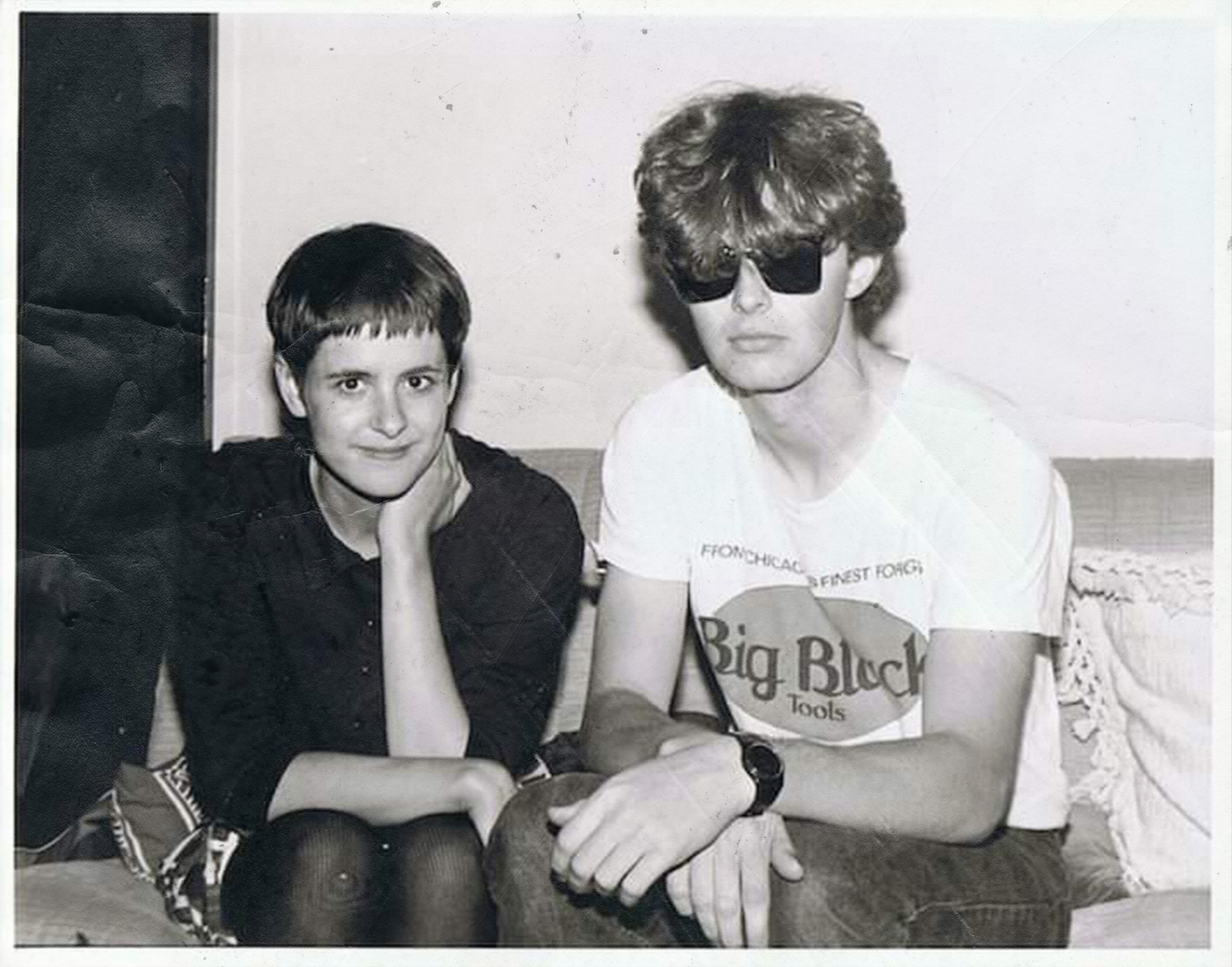Swansea Sound
Jeanines, The Natvral

SWANSEA SOUND
Formed during lockdown, the band recorded three singles – at their homes in Cardiff and Kent – without actually meeting each other. Corporate Indie Band appeared as a cassette on specialist label Lavender Sweep. It got a lot of airplay, and the next releases were on 7” vinyl, including Indies Of the World, which made it into the UK vinyl Top 10. A debut album, Live At The Rum Puncheon, was released in 2021 to considerable critical acclaim.
‘The glorious sounds of C86 brought into the now.’ Thomas Patterson, Shindig.
‘Close to an indie pop miracle.’ Tim Sendra, All Music.
‘An essential broadcast from the forefront of the indiepop resistance.’ Andy Brown, Louder than War.
Swansea Sound are Hue Williams (C20 The Pooh Sticks), Amelia Fletcher and Rob Pursey (both C20 Talulah Gosh/Heavenly, C21 The Catenary Wires), Bob Collins (C20 The Dentists, C21 The Treasures of Mexico), Ian Button, (C20 Death in Vegas, C21 with Louis Philippe, Pete Astor and Papernut Cambridge)
JEANINES
Brooklyn’s Jeanines specialize in ultra-short bursts of energetic but melancholy minor-key pop. With influences that run deep into the most crucial tributaries of DIY pop — Messthethics, the Television Personalities, Marine Girls, early Pastels, Dolly Mixture — they’ve crafted a style that is as individual as it is just plain pleasurable. Alicia Jeanine’s pure, unaffected voice muses wistfully on the illusions of time, while My Teenage Stride/Mick Trouble mastermind Jed Smith’s frantic Motown-esque drumming and inventive bass playing provide a thrilling rhythmic foundation.
“Winter In The Dark” and a lovely, jaunty cover of The Siddeleys’ “Falling Off Of My Feet Again” provide great insight into what Jeanines are about. 60s-meet-80s melodies combine with timeless guitar jangle in a way that recalls everything from The Aislers Set and Saturday Looks Good To Me to more recent DIY pop groups like Parsnip and Chook Race. Album opener “Either Way,” “Hits The Bone” and “Where We Go” hearken back to some of the most intriguing bands of the C86/C88 era, when bands like Jesse Garon & The Desperadoes crafted perfect pop gems enlivened by the inspiration of punk.
Gorgeous songs like “Where I Stand,” “Too Late” and “In This House” are windows into Alicia’s lyrical style and inspiration. She expands: “I’m kind of obsessed with mortality and how weird the passage of time is so I think my lyrics reflect that. I definitely lean into that kind of melancholy state of mind when trying to think of lyrics, while trying to avoid cliches!” The marriage of the minor-key melodies and melancholic lyrics is powerful and make Alicia’s songs all the more memorable, especially so on songs like “No Home,” with its echoes of girl harmony post-punk groups like Grass Widow and Household.
Clearly, with 16 great songs included, there is a lot at work here on this standout debut album. Jeanines have been compared to such cult pop icons as Dear Nora, Black Tambourine, and more recent acts like Veronica Falls and Girl Ray, but their dark, modal melodies and pensive, philosophical lyrics, along with Smith’s versatile but ever-economical musicality, ensure them a place of their own in today’s crowded but boisterously healthy DIY pop scene.
THE NATVRAL
The Natvral (Kip Berman, former frontperson of The Pains of Being Pure at Heart) returns with his second solo album, Summer of No Light on Dirty Bingo Records.
On his second album as The Natvral – a spirited, beautifully observed collection of rough and ready songcraft – the former Pains of Being Pure at Heart frontperson was eyeing the past while dealing with an inescapable present. In 2020, in the early stages of lockdown, Berman began writing songs that reflected on a world that had seemingly ended – while contending with the needs of his young family seeking solace in the familiar. “After putting my children to bed, I spent many a late night in the basement with my guitar and let my mind wander to the places where I could no longer go,” he says. “Initially, a lot of the songs were about getting as far away from the reality of my moment as possible.”
He drew parallels with another tumultuous summer. “The record’s title, Summer of No Light, is taken from the climate crisis of 1816,” he says. Often referred to as The Year Without a Summer, that year a massive volcanic eruption in Indonesia darkened much of the world’s sky. The resulting ash brought dramatic global cooling and widespread famine, hitting Western Europe especially hard. While he initially sought escape from the isolation in which he found himself, soon the solace of home and family life began to seep its way into the music “The routines of domesticity were often unwelcome, and always exhausting – but probably mentally helpful. I was isolated, but not alone.” Despite the many graveyard romps that populate the record, it’s the moments that celebrate home that gives this album its heart.
Summer of No Light is an album that’s born of a precise moment, yet revels in anachronism. Collapsing time to make a little bit of sense of this one, Berman feels artistically rejuvenated, drawing on histories large and small to breathe new life and perspective on his own. “It was a time that is now almost unspeakable – not because the tragedy was too profound or in any way trivial – but because we were all there.”

